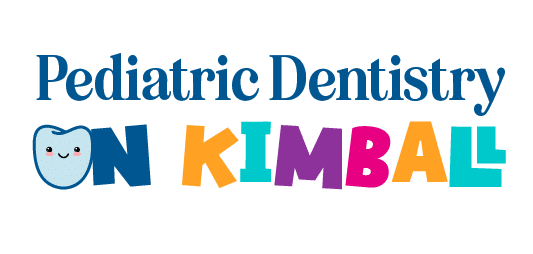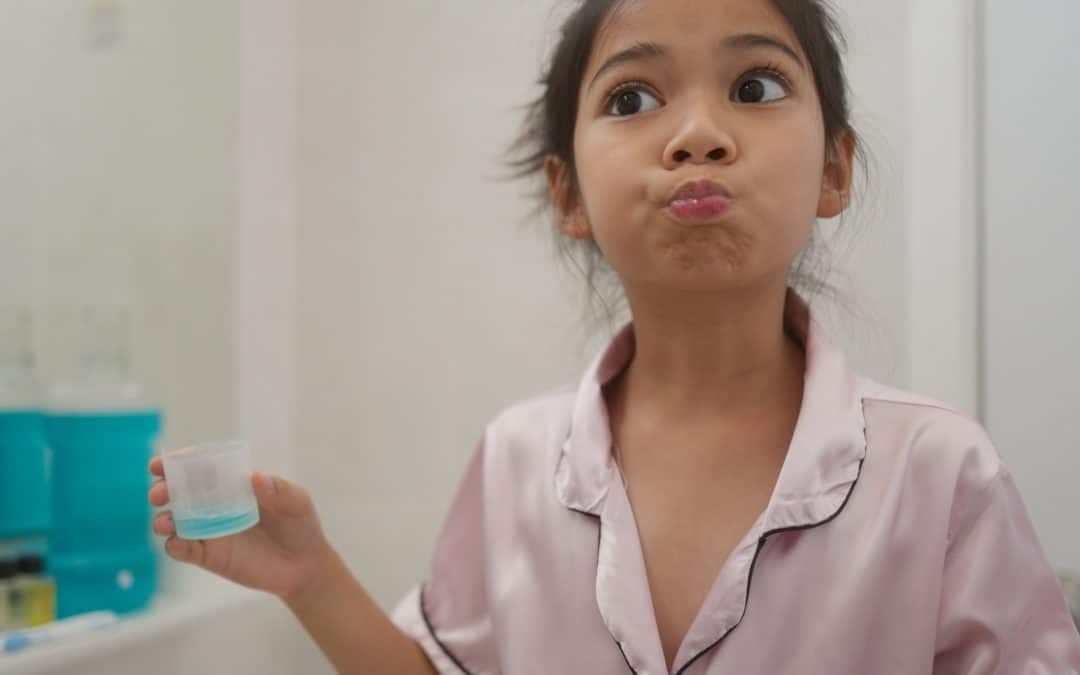Mouthwash can be a powerful addition to a child’s oral hygiene routine—but only when the time is right. As a parent, you want to give your child every advantage for a healthy smile, but you also want to avoid unnecessary risks. At Pediatric Dentistry on Kimball in Brooklyn, NY, we understand the importance of educating families while ensuring safe, age-appropriate care.
Dr. Lionel Vera, a board-certified pediatric dentist, works with families every day to establish strong dental habits that last a lifetime. One question we’re often asked is: “When should my child start using mouthwash?” The short answer? Around age 6—but readiness depends on much more than a number.
This Article Will Address:
- The safe age to introduce mouthwash to children
- How to know if your child is ready
- Risks of starting too early
- Best practices for teaching kids to use mouthwash
- When to use it (before or after brushing)
- How often kids should use mouthwash
- Which type of mouthwash is best
- Insight from a local pediatric dentist you can trust
At What Age Can Children Begin Using Mouthwash?
According to the American Dental Association (ADA), children can start using mouthwash around the age of 6. That’s typically when most kids develop the ability to swish and spit effectively—an important skill to prevent accidentally swallowing the rinse.
However, age is only one part of the equation. Just because a child is 6 doesn’t mean they’re ready. At Pediatric Dentistry on Kimball, we look for behavioral readiness too. If a child struggles with following instructions or hasn’t mastered rinsing and spitting with water, we’ll recommend holding off.
Important considerations before introducing mouthwash:
- Always choose a fluoride-based, alcohol-free mouthwash made for kids.
- Children should be closely supervised during use.
- Avoid mouthwash entirely in children who cannot spit reliably—this prevents the risk of fluoride overexposure, which can lead to dental fluorosis.
What Are the Risks of Using Mouthwash Too Early?
Introducing mouthwash too soon—before your child can spit—can create unnecessary health risks.
Here’s why timing matters:
- Fluorosis: Swallowing fluoride regularly before the age of 6 can lead to fluorosis, which appears as white or brown spots on the permanent teeth. While it doesn’t affect function, it can affect your child’s smile and confidence later on.
- Alcohol-based irritation: Many adult mouthwashes contain alcohol, which can irritate your child’s sensitive gums and oral tissues.
- Swallowing risks: A child who swallows mouthwash instead of spitting it out may experience stomach discomfort or—if it becomes a habit—fluoride toxicity.
That’s why at our practice, we only recommend mouthwash when a child is developmentally ready and always under adult supervision.
How to Tell If Your Child Is Ready for Mouthwash
Wondering if your child is ready? Here are a few questions we encourage parents to ask:
- Can your child spit out water consistently without swallowing?
- Do they follow multi-step instructions (like brushing, rinsing, then spitting)?
- Are they always supervised during brushing and rinsing?
- Have you practiced swishing and spitting with plain water first?
If you’re not sure, Dr. Vera can walk you through a few simple at-home tests or help during a regular checkup.
Should Children Use Mouthwash Before or After Brushing?
Timing matters when using mouthwash—especially if you’re using a fluoride rinse.
We typically recommend using mouthwash after brushing and flossing. This way, the fluoride from the rinse can remain on your child’s teeth longer, helping to strengthen enamel and protect against cavities.
However, always read the label. Some mouthwash brands may suggest a specific routine, especially those formulated for kids.
How Often Should Kids Use Mouthwash?
For most children, using mouthwash once a day—preferably before bedtime—is plenty.
Best practices include:
- Choosing an alcohol-free, ADA-approved, fluoride-containing rinse
- Monitoring your child’s technique
- Making mouthwash part of a well-rounded routine (brushing twice and flossing once per day)
More is not better here. Overusing mouthwash, especially one with fluoride, may do more harm than good. Always use the amount recommended on the label and ask your pediatric dentist if you’re unsure.
What Type of Mouthwash Is Best for Children?
Not all mouthwashes are created equal. Choosing the right one is key to maximizing benefits while avoiding potential harm.
Look for:
- Therapeutic mouthwash (vs. cosmetic): Helps fight plaque and strengthen teeth
- ADA-approved seal on the label
- Alcohol-free formulas designed for children
- Flavored options that make the experience more enjoyable
- Fluoride content tailored to their age and needs
If you’re looking for a safe starting point, Dr. Vera can recommend trusted brands during your child’s next visit.
Encouraging Healthy Habits Starts Early
Mouthwash can be a helpful tool in your child’s oral care routine—but only when they’re ready. At Pediatric Dentistry on Kimball, we don’t just treat teeth—we help families build confidence, consistency, and healthy habits for life.
If you have questions about when your child should start using mouthwash, or how to safely build it into their routine, we’re here to help.
Call our Brooklyn office today or schedule a visit online. Let’s create a healthy dental future—together.
Sources:
- American Dental Association. Mouthwash for Children
- Centers for Disease Control and Prevention (CDC). Fluoride and Fluorosis
- Academy of Pediatric Dentistry. Guidelines on Pediatric Oral Health Care

Dr. Lionel Vera
Dr. Lionel Vera brings warmth, expertise, and advocacy to Pediatric Dentistry on Kimball as a board-certified pediatric dentist. He earned his dental degree from the University of Puerto Rico, Medical Science Campus, followed by a residency at Kingsbrook Jewish Medical Center, where he honed his skills with children and special needs patients. A Brooklyn-based pediatric dentist since 2018, Dr. Vera blends compassionate care with a strong focus on educating both children and parents about oral health. Dr. Vera’s mission: to inspire a lifetime of healthy smiles through trust, education, and proactive care.

